Discover the best roofing options in Kenya for 2025 — from affordable iron sheets to modern tiles and shingles. Learn about roofing materials, costs, and how to choose the ideal roof type for your project.
Understanding Roofing Options in Kenya
Kenya offers a wide variety of roofing options, ranging from traditional iron sheets to premium clay tiles and stone-coated metal roofs. The choice of roofing material affects not only cost but also durability, appearance, and maintenance needs. Homeowners today prioritise a balance between price and performance when selecting roof types. This guide will help you understand what’s available and how to make the right choice for your budget and climate.
Related post: House Construction Costs in Kenya 2025 – Full Breakdown
Popular Roofing Materials in Kenya
Kenyan homeowners have access to multiple roofing materials suitable for different regions and weather conditions. Each material comes with its own benefits, pricing, and visual appeal.
Corrugated Iron Sheets
Corrugated iron sheets are among the most common roofing options in Kenya due to their affordability and easy installation. They’re ideal for rural homes, temporary structures, or cost-conscious projects. However, they tend to rust if not galvanized or coated, and may require repainting over time. Their lightweight nature also makes them easy to transport and maintain.
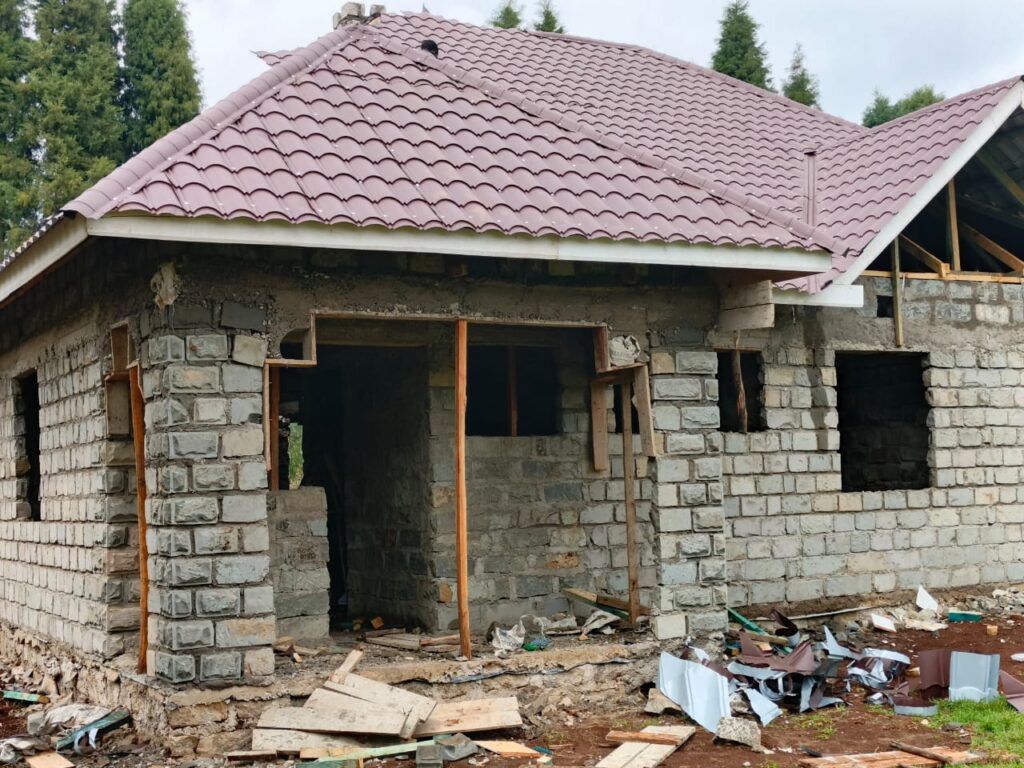
Stone-Coated Metal Roofing
Stone-coated tiles combine the durability of metal with the classic look of tiles. They resist corrosion, strong winds, and temperature extremes — making them ideal for Kenya’s varied climates. Although more expensive initially, they require minimal maintenance and can last over 40 years.
Clay and Concrete Tiles
Tiles provide a premium look and excellent insulation. Clay tiles are especially suited for warm regions as they keep interiors cool. While installation costs are higher and tiles are heavier, their longevity and aesthetic appeal make them a popular choice for homeowners seeking elegance.
Roofing Costs in Kenya 2025
Roofing costs in Kenya vary depending on material, size, and labour. Prices range from as low as KSh 350 per m² for corrugated sheets to over KSh 2,000 per m² for tiles or shingles.
Factors Affecting Roofing Costs
Roofing costs are influenced by several factors — such as roof pitch, structure complexity, transport, and installation. High-end materials like shingles or stone-coated tiles also require specialized labour, which increases overall expenses. Budgeting correctly helps avoid unexpected costs during your build.
Related post: How to Hire a Reliable Contractor in Kenya
Labour and Installation Expenses
Labour typically contributes 25–40% of total roofing costs. Skilled installers ensure proper alignment, waterproofing, and safety standards are met. Hiring experienced contractors prevents leakage and extends roof life.
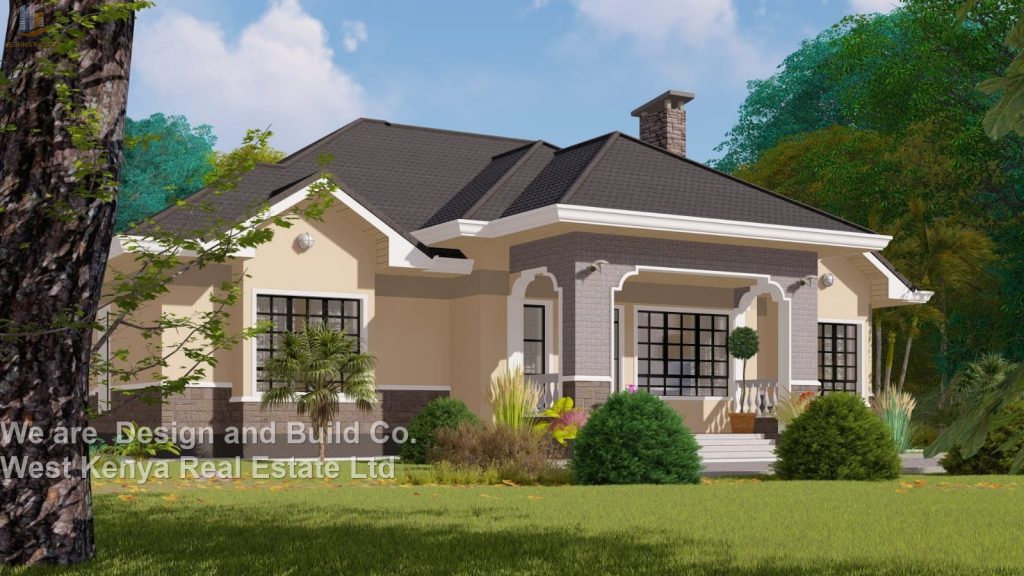
Choosing the Best Roofing Type for Your Climate
Kenya’s climate diversity means roof performance varies by region. Selecting a material that suits your area ensures comfort and longevity.
Roofing for Hot and Dry Areas
In hot regions like Machakos or Garissa, materials that reflect heat — such as clay tiles or reflective metal sheets — are recommended. They minimize indoor heat and reduce energy costs for cooling.
Roofing for Coastal Regions
Coastal areas require corrosion-resistant materials. Aluminum or stone-coated roofs are best as they withstand salty air and humidity. Regular maintenance is key to preventing rust and fading.
Energy-Efficient Roofing Materials Kenya
Eco-conscious homeowners are increasingly considering energy-efficient roofing materials. These options reduce heat absorption and lower electricity usage.
Cool Roofs and Reflective Coatings
Cool roofs use reflective coatings to bounce sunlight away. This technology helps homes stay cooler naturally, lowering the need for fans or ACs. Though initial costs are higher, energy savings over time are significant.
Solar Roof Panels
Solar-integrated roofs are emerging in Kenya, especially in urban areas. They combine modern design with renewable energy generation, making them ideal for long-term investment.
Related post: How to Budget for House Construction in Kenya — Complete, Actionable Guide
Roofing Accessories and Finishes
Roofing isn’t just about sheets or tiles — accessories play a key role in performance. Items like ridge caps, gutters, and insulation improve roof durability and water drainage.
Gutters and Rainwater Harvesting
Installing gutters helps manage rainwater flow and prevents erosion around your home’s foundation. In Kenya, many homeowners combine gutters with storage tanks for rainwater harvesting.
Roof Insulation and Ventilation
Proper insulation and ventilation prevent heat buildup and condensation inside the ceiling. It’s especially crucial in metal roofs to avoid moisture damage.
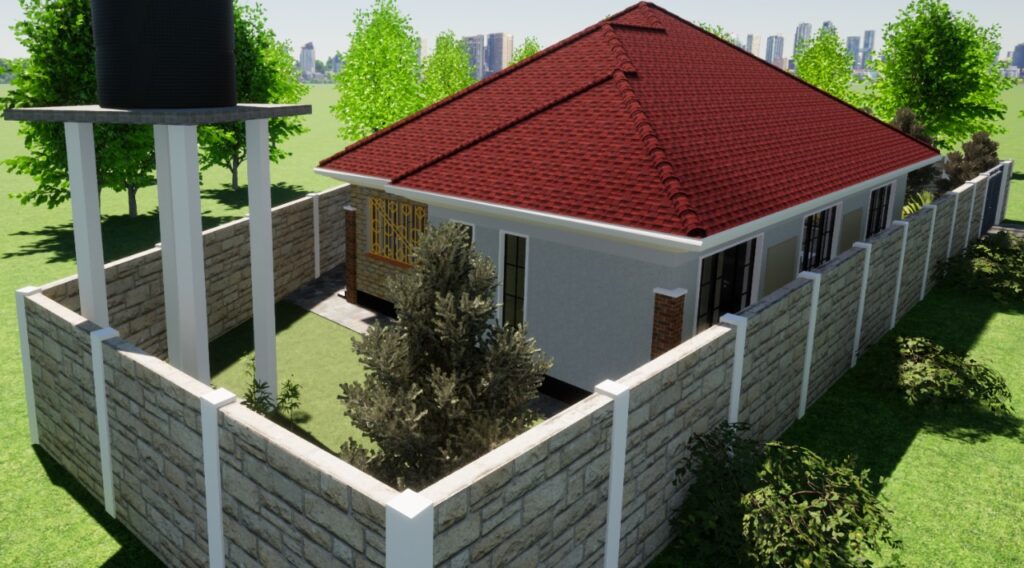
Roofing Colour and Aesthetic Choices
Your roof’s colour affects both energy efficiency and appearance. Lighter shades reflect sunlight, while darker ones absorb more heat.
Modern Roof Colour Trends
In 2025, neutral tones like charcoal grey, matte black, and clay red dominate Kenya’s housing market. They blend well with natural and urban environments, boosting resale value and curb appeal.
Maintenance and Roof Longevity
Regular maintenance ensures your roof stays in top condition for years. Simple checks can prevent expensive repairs later.
Preventive Maintenance Tips
Inspect for rust, leaks, or broken tiles every six months. Cleaning debris and repainting metallic roofs prolong their lifespan significantly. Hiring a professional once a year helps detect hidden damage early.
Where to Buy Roofing Materials in Kenya
Kenya’s roofing market includes both physical and online stores. Choosing reliable suppliers ensures quality materials and warranty coverage.
Trusted Roofing Suppliers
Popular suppliers include Mabati Rolling Mills, Royal Mabati, and Rafiki Roofing Mabati. These companies offer a wide range of designs and colours, with nationwide delivery options.
Related post: Cost of Cement and Building Materials in Kenya 2025
Comparing Roofing Brands in Kenya
Kenya’s roofing brands differ in quality, coating technology, and warranty terms.
Local vs Imported Roofing Brands.
Local brands are affordable and easy to find, while imported options offer premium finishes and longer durability. Comparing warranty terms and after-sales support helps in making an informed choice.
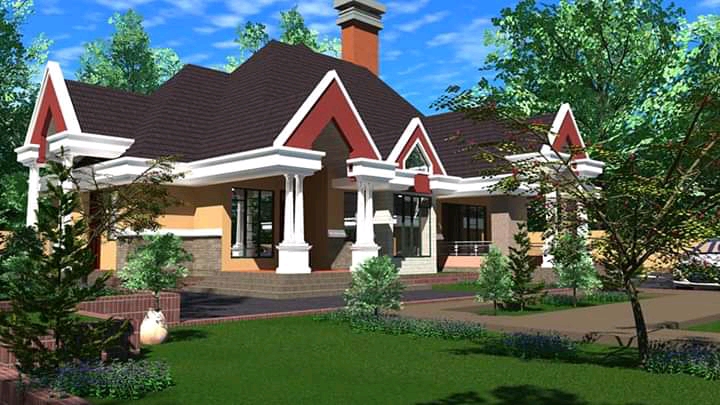
Roofing Installation Tips and Mistakes to Avoid
Even high-quality materials can fail if poorly installed.
Common Roofing Mistakes in Kenya
Frequent errors include using mismatched nails, skipping underlayment, and ignoring roof pitch requirements. Always work with certified roofers to ensure long-lasting results.
Related post: Cost of an Architect to Draw House Plans in Kenya
Roofing Innovations and Future Trends
Kenya’s construction sector is embracing smart roofing solutions.
Sustainable and Modular Roof Systems
Green roofing and modular systems are gaining popularity for their eco-benefits and speed of installation. They reduce environmental impact while improving design flexibility.
Conclusion
When exploring roofing options in Kenya, balancing cost, durability, and design is key. The best roofing material depends on your budget, climate, and style preference. Whether choosing iron sheets, tiles, or stone-coated metal, proper installation ensures long-lasting protection. Always compare suppliers and consider maintenance needs before making your final decision.
Frequently Asked Questions (FAQ)
- What are the most popular roofing options in Kenya in 2025?
The most popular roofing options in Kenya in 2025 include corrugated iron sheets, stone-coated metal tiles, clay tiles, and shingles. Corrugated sheets remain a top choice due to their affordability, while stone-coated and clay tiles appeal to homeowners seeking a more elegant finish. Metal roofs are preferred for durability and minimal maintenance. The rise of energy-efficient and solar roofs also continues as Kenyans embrace sustainable building.
- Which roofing material is cheapest in Kenya?
The cheapest roofing material in Kenya is the standard corrugated iron sheet, commonly known as mabati. Prices start from around KSh 350–600 per m² depending on gauge and brand. While it’s budget-friendly and easy to install, it requires periodic repainting or coating to prevent rust. For low-cost housing projects, galvanized mabati remains the best value choice across the country.
- What’s the average cost of roofing per square metre?
The roofing cost in Kenya varies based on material, labour, and design. On average, iron sheets cost between KSh 350–800 per m², stone-coated tiles range from KSh 1,200–2,000 per m², and clay or concrete tiles cost KSh 1,500–2,500 per m². Labour adds another 25–40% to the total cost depending on roof complexity. Always get detailed quotes from licensed contractors to avoid budget surprises.
- How long do stone-coated tiles last in Kenya?
Stone-coated metal tiles can last 40–50 years in Kenya if properly installed and maintained. They’re designed to resist corrosion, fading, and impact from heavy rains or debris. Their long lifespan justifies the higher initial investment compared to standard mabati. With minimal maintenance and periodic cleaning, these roofs maintain their colour and structure for decades.
- Are clay tiles suitable for hot regions?
Yes, clay tiles are ideal for hot and dry regions in Kenya such as Machakos, Kitui, and parts of the Rift Valley. They provide excellent insulation by keeping homes cooler during the day and warmer at night. Their natural material also allows for breathability, reducing humidity inside the house. Although heavier and costlier to install, clay tiles offer unmatched comfort and durability in high-temperature zones.
- Can I install a solar roof in Kenya?
Yes, solar roofing systems are now available in Kenya, especially in urban developments. Homeowners can choose between solar panels mounted on metal or tiled roofs, or integrated solar shingles for a seamless look. These systems reduce electricity bills and increase property value. Reputable suppliers like Davis & Shirtliff and Sollatek Kenya offer installation packages for residential and commercial properties.
Related post: House Designs in Kenya and the Cost.
- Where can I buy affordable mabati in Nairobi?
You can buy affordable mabati roofing sheets in Nairobi from top suppliers like Royal Mabati, Mabati Rolling Mills (MRM), and Rafiki Roofing. They stock different profiles such as corrugated, box, and tiled designs in various colours and gauges. Online options also exist on platforms like Jumia or company websites for nationwide delivery. Always verify warranty and thickness before purchase.
- How often should I maintain or repaint my roof?
For metal and iron sheet roofs, repainting or coating every 3–5 years is recommended to prevent rust and fading. Regular maintenance checks every six months help detect loose nails, leaks, or blocked gutters early. Tile roofs require less frequent attention but should be inspected after heavy storms. Timely maintenance ensures longevity and preserves the aesthetic appeal of your roof.
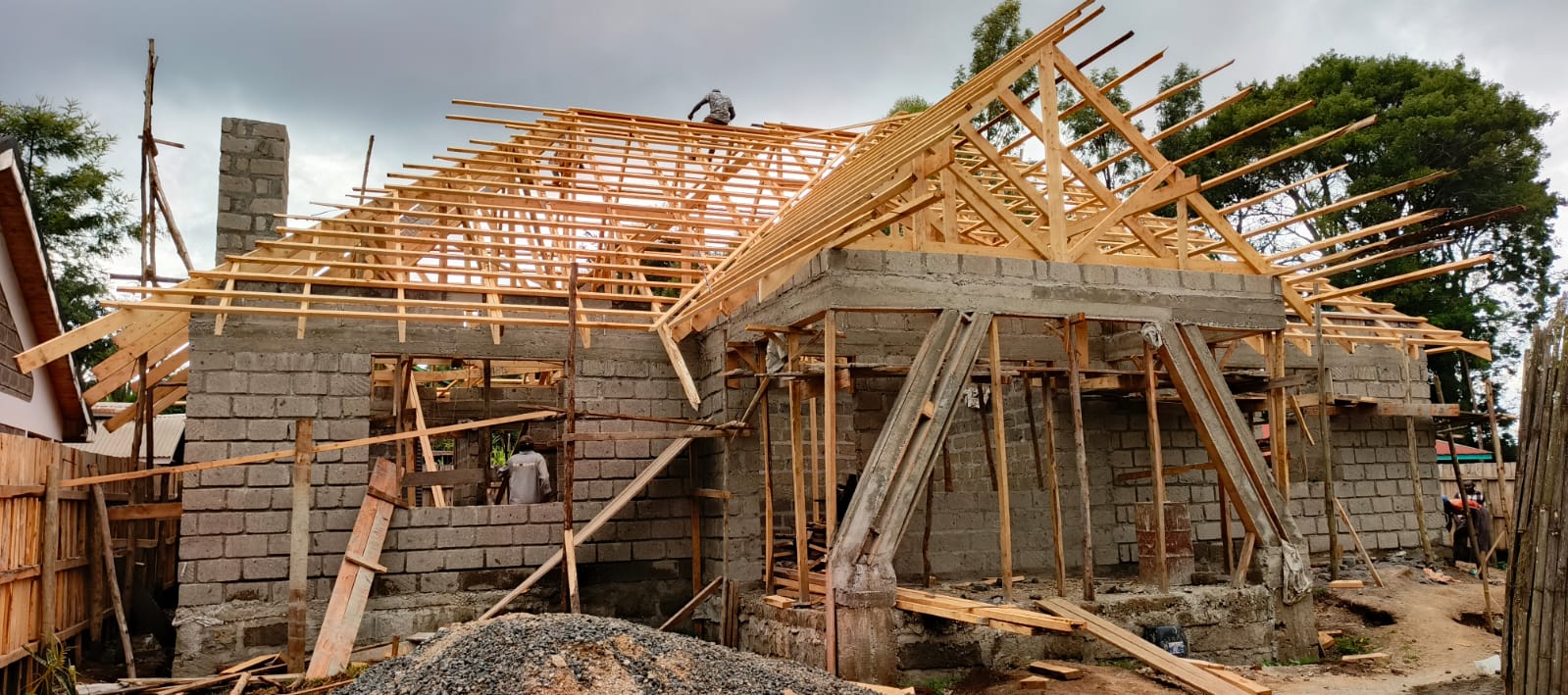



18 thoughts on “Roofing Options in Kenya: Costs, Materials & Best Choices for 2025”